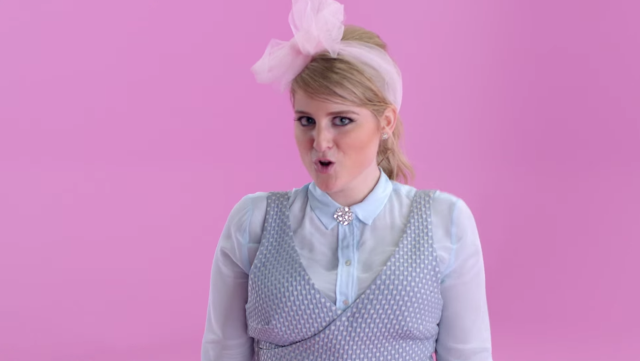
A Tuesday copyright roundtable discussion, hosted by Nashville's Belmont University and led by the House Judiciary Committee, opened with one of the past year's most successful songwriters announcing just how little money he'd made from more than 178 million streams of a song he co-wrote: $5,679.
That means Nashville songwriter Kevin Kadish, the co-writer of the hit 2014 Meghan Trainor song "All About That Bass," made close to $31.90 for every million streams. According to a report by The Tennessean, Kadish didn't clarify to the roundtable's five members of the House of Representatives exactly how the songwriting proceeds were split between himself and Trainor (who shared songwriting credits on "Bass"), but he did allege that the average streaming-service payout for a song's songwriting team is roughly $90 per million streams.
"That's as big a song as a songwriter can have in their career, and number one in 78 countries," Kadish said. "But you're making $5,600. How do you feed your family?"
The reason Kadish and other songwriters were complaining to members of Congress, as opposed to representatives from either music labels or streaming services, is because American songwriters are paid per play through what's known as a "mechanical license"—a term derived from all the way back in 1911, when songwriters' works were distributed in the United States via piano rolls. The funny thing about a mechanical license is that streaming music services do not have to negotiate with songwriters over what that per-play fee should be. That rate, according to American copyright law, is chosen by the US Government. (This is a different issue than the kinds of negotiations performing artists have complained about.) Update: Songwriters do also receive payments based on "performance licenses," which can be negotiated, but if an agreement isn't made, songwriters are still at the mercy of federal rate courts—which Kadish addressed in his presentation, as well. American Songwriter offers a brief primer on the subject.
As such, Kadish urged Congress to vote in favor of the Songwriter Equity Act, which would update two portions of current American copyright law so that a "fair rate standard" would be established for mechanical licenses. Other speakers at the roundtable, according to the Tennessean's report, argued for the creation of a centralized music copyright database "to improve transparency and to simplify licensing."
Kadish's statement echoed those made by other prominent American songwriters in recent years; in 2013, songwriter Aloe Blacc alleged that Pandora paid $12,359 to the writers of the Avicii song "Wake Me Up," which enjoyed more than 168 million Pandora streams—meaning the songwriters and publishers split roughly $73 per million streams.
One day after the roundtable, Pandora announced that its royalty payments reached an all-time high in the past year at roughly $500 million, which followed the prior nine years' payments adding up to nearly $1 billion. That press release didn't clarify how those payments to "rights holders and creators" were split between performers, songwriters, music labels, and other entities.
This article's headline originally stated that the payments in question were made by Spotify, when they were in fact made by Pandora.
reader comments
357